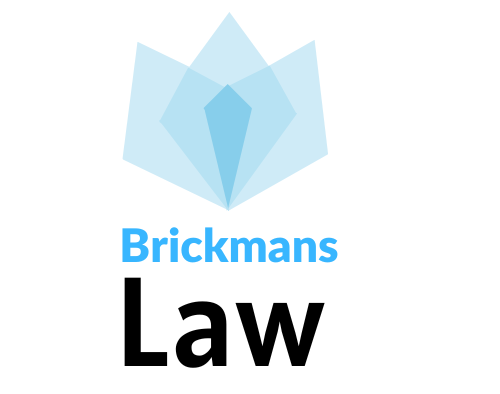FG Drag NASS To Supreme Court Over Section 84 (12)
President Muhammadu Buhari and the attorney-general of the federation and minister of justice, Mr Abubakar Malami (SAN) have filed a suit at the Supreme Court, seeking an interpretation of the controversial Section 84(12) in the Electoral Amendment Act 2022.
In the suit, Malami listed the National Assembly as the sole defendant.
Section 84 (12) has been a subject of litigation and political debate since President Buhari signed the amended Electoral Act 2022 into law in February this year.
Shortly after signing it into law, Buhari had urged the parliament to delete the controversial clause in the Electoral Act, but the National Assembly declined the president’s request.
According to Section 84 (12) of the legislation, “No political appointee at any level shall be a voting delegate or be voted for at the convention or congress of any political party for the purpose of the nomination of candidates for any election.”
On March 18, 2022, the Federal High Court in Umuahia, Abia State, struck out Section 84 (12) on the ground that it was in conflict with some sections of the Nigerian constitution.
But last week, the Court of Appeal sitting in Abuja, set the judgement aside.
In the suit marked SC/CV/504/2022 and filed on April 29, 2022, Messrs Buhari and Malami are seeking an order of the apex court to strike out the section of the Electoral Act, which they argue was inconsistent with the nation’s constitution.
According to the court document published by Sahara Reporters, the plaintiffs contend that the Section 84 (12) of the Electoral (Amendment) Act, 2022 is inconsistent with the provisions of sections 42, 65, 66, 106, 107, 131, 137, 147, 151, 177, 182, 192 and 196 of the Constitution of Federal Republic of Nigeria, 1999, (as amended), as well Article 2 of the African Charter on Human and People and Peoples Rights.
The plaintiffs also contended that the Nigerian constitution already provides qualification and disqualification for the offices of the President and Vice President, Governor and Deputy Governor, Senate and House of Representatives, House of Assembly, Ministers, Commissioners and Special Advisers.
They urged the Supreme Court to make: “A declaration that the joint and or combined reading of the section 65, 66, 106, 107, 131, 137, 147, 151, 177, 182, 192 and 196 of the constitution of the Federal Republic of Nigeria, 1999, (as amended), the provision of Section 84 (12) of the Electoral Act, 2022 which also ignores Section 84(3) of the same Act, is an additional qualifying and/or disqualifying factors for the National Assembly, House of Assembly, Gubernatorial and Presidential elections as enshrined in the said constitution, hence unconstitutional, unlawful, null and void.
“A declaration that having regard to the clear provision of section 1(3) of the constitution of the Federal Republic of Nigeria, 1999, as amended, read together with section 4 of the same Constitution, the legislative powers vested in the defendants do not permit or empower it to make any other law prescribing additional qualifying/disqualifying grounds for election to the National Assembly, House of Assembly, gubernatorial and Presidential election outside the express constitutional qualification and disqualification provisions as already provided in each or all of sections 65, 66, 106, 107, 131, 137, 147, 151, 177, 182, 192 and 196 of the 1999 constitution of the Federal Republic of Nigeria (as amended), and without amendment to any of those sections is for reason of inconsistency, unconstitutional and therefore null and void.
“A declaration that section 84(12) of the Electoral Act, 2022 disqualifying political appointees from being voting delegates or be voted for at a convention or Congress of any political party for the purpose of the nomination of candidates for any election is discriminatory, inconsistent and in violent breach of the provision of each of the Sections, 42, 65, 66, 106, 107, 131, 137, 147, 151, 177, 182, 192 and 196 of the Constitution of Federal Republic of Nigeria, 1999, (as amended), as well Article 2 of the African Charter on Human and People and Peoples Rights and same is null and void by reason of its inconsistency.
“A declaration that by the introduction of the provision of Section 84 (12) into the Electoral Act, 2022, but in disregard of Section 84(3) of the same Act, the Defendant has acted ultra vires the legislative powers vested in it under the provision of section 4 of the constitution of the Federal Republic of Nigeria, 1999 (as amended) and/or in violation or breach of the provisions of Sections 65, 66, 106, 107, 131, 137, 147, 151, 177, 182, 192 and 196, thereby rendering Section 84(12) of the Electoral Act, 2022 unconditional, null and void.
“An order nullifying the provision of Section 84 (12) of the Electoral Act, 2022 by application of the blue pencil rule, for being unconstitutional, illegal, null and void and having been made in excess of the legislative powers of the 1st Defendant as enshrined in section 4 of the constitution (as amended).
The post FG Drag NASS To Supreme Court Over Section 84 (12) appeared first on Lawyard.
